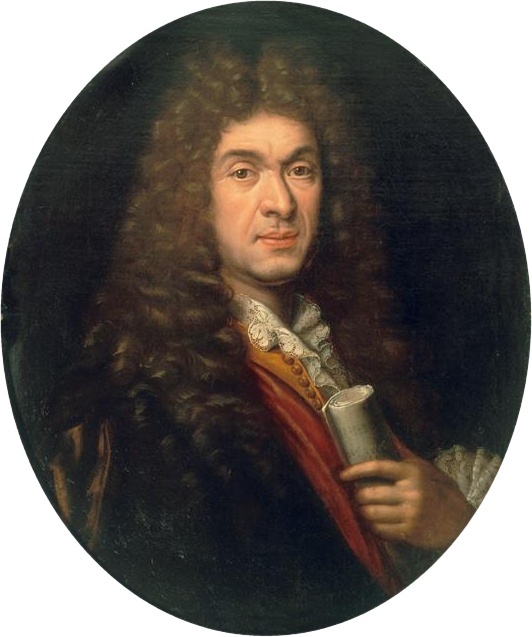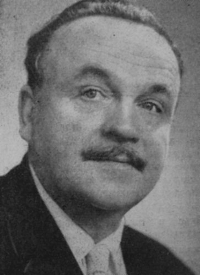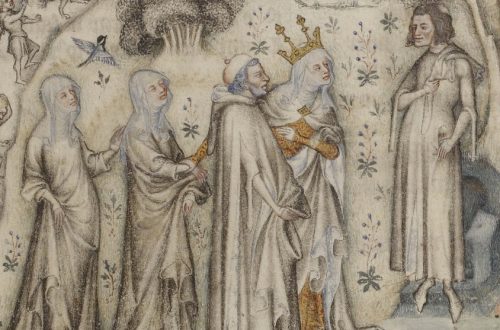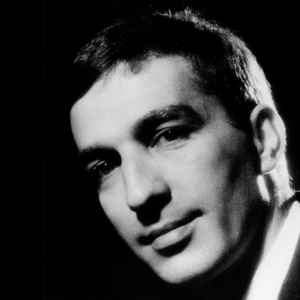
Jean-Baptiste Lully |
Jean-Baptiste Lully
Lully Jean-Baptiste. Minuet
Few were as genuinely French musicians as this Italian, he alone in France has retained popularity for a whole century. R. Rollan
J. B. Lully is one of the greatest opera composers of the XNUMXth century and the founder of the French musical theatre. Lully entered the history of the national opera both as the creator of a new genre – lyrical tragedy (as the great mythological opera was called in France), and as an outstanding theatrical figure – it was under his leadership that the Royal Academy of Music became the first and main opera house in France, which later gained worldwide fame called Grand Opera.
Lully was born into a miller’s family. The musical abilities and acting temperament of the teenager attracted the attention of the Duke of Guise, who, ca. In 1646 he took Lully to Paris, assigning him to the service of Princess Montpensier (sister of King Louis XIV). Having not received a musical education in his homeland, who by the age of 14 could only sing and play the guitar, Lully studied composition and singing in Paris, took lessons in playing the harpsichord and, especially, his favorite violin. The young Italian, who won the favor of Louis XIV, made a brilliant career at his court. A talented virtuoso, about whom contemporaries said – “to play the violin like Baptiste”, he soon entered the famous orchestra “24 Violins of the King”, approx. 1656 organized and led his small orchestra “16 Violins of the King”. In 1653, Lully received the position of “court composer of instrumental music”, since 1662 he was already the superintendent of court music, and 10 years later – the owner of a patent for the right to found the Royal Academy of Music in Paris “with life-long use of this right and transfer it to bequeathed to whichever son succeeds him as superintendent of the king’s music.” In 1681, Louis XIV honored his favorite with letters of nobility and the title of royal adviser-secretary. Having died in Paris, Lully until the end of his days retained the position of absolute ruler of the musical life of the French capital.
Lully’s work developed mainly in those genres and forms that were developed and cultivated at the court of the “Sun King”. Before turning to opera, Lully in the first decades of his service (1650-60) composed instrumental music (suites and divertissements for string instruments, individual pieces and marches for wind instruments, etc.), sacred compositions, music for ballet performances (“Sick Cupid”, “Alsidiana”, “Ballet of Mocking”, etc.). Constantly participating in court ballets as an author of music, director, actor and dancer, Lully mastered the traditions of French dance, its rhythm and intonation and stage features. Collaboration with J.B. Molière helped the composer to enter the world of the French theater, to feel the national identity of stage speech, acting, directing, etc. Lully writes music for Molière’s plays (Marriage involuntarily, Princess of Elis, The Sicilian) , “Love the Healer”, etc.), plays the role of Pursonjak in the comedy “Monsieur de Pursonjac” and Mufti in “The tradesman in the nobility”. For a long time he remained an opponent of opera, believing that the French language was unsuitable for this genre, Lully in the early 1670s. abruptly changed his views. In the period 1672-86. he staged 13 lyric tragedies at the Royal Academy of Music (including Cadmus and Hermione, Alceste, Theseus, Atys, Armida, Acis and Galatea). It was these works that laid the foundations of French musical theater and determined the type of national opera that dominated France for several decades. “Lully created a national French opera, in which both text and music are combined with national means of expression and tastes, and which reflects both the shortcomings and the virtues of French art,” writes the German researcher G. Kretschmer.
Lully’s style of lyrical tragedy was formed in close connection with the traditions of the French theater of the Classical era. The type of a large five-act composition with a prologue, the manner of recitation and stage play, plot sources (ancient Greek mythology, the history of Ancient Rome), ideas and moral problems (the conflict of feelings and reason, passion and duty) bring Lully’s operas closer to the tragedies of P. Corneille and J. Racine . No less important is the connection of lyrical tragedy with the traditions of the national ballet – large divertissements (inserted dance numbers not related to the plot), solemn processions, processions, festivities, magical paintings, pastoral scenes enhanced the decorative and spectacular qualities of the opera performance. The tradition of introducing ballet that arose in the time of Lully proved to be extremely stable and continued in French opera for several centuries. Lully’s influence was reflected in the orchestral suites of the late XNUMXth and early XNUMXth centuries. (G. Muffat, I. Fuchs, G. Telemann and others). Composed in the spirit of Lully’s ballet divertissements, they included French dances and character pieces. Widespread in opera and instrumental music of the XNUMXth century. received a special type of overture, which took shape in the lyrical tragedy of Lully (the so-called “French” overture, consisting of a slow, solemn introduction and an energetic, moving main section).
In the second half of the XVIII century. the lyrical tragedy of Lully and his followers (M. Charpentier, A. Campra, A. Detouches), and with it the whole style of the court opera, becomes the object of the sharpest discussions, parodies, ridicule (“the war of the buffons”, “the war of the glucians and picchinnists”) . Art, which arose in the era of the heyday of absolutism, was perceived by contemporaries of Diderot and Rousseau as dilapidated, lifeless, pompous and pompous. At the same time, the work of Lully, which played a certain role in the formation of a great heroic style in opera, attracted the attention of opera composers (J.F. Rameau, G.F. Handel, K.V. Gluck), who gravitated towards monumentality, pathos, strictly rational, orderly organization of the whole.
I. Okhalova





